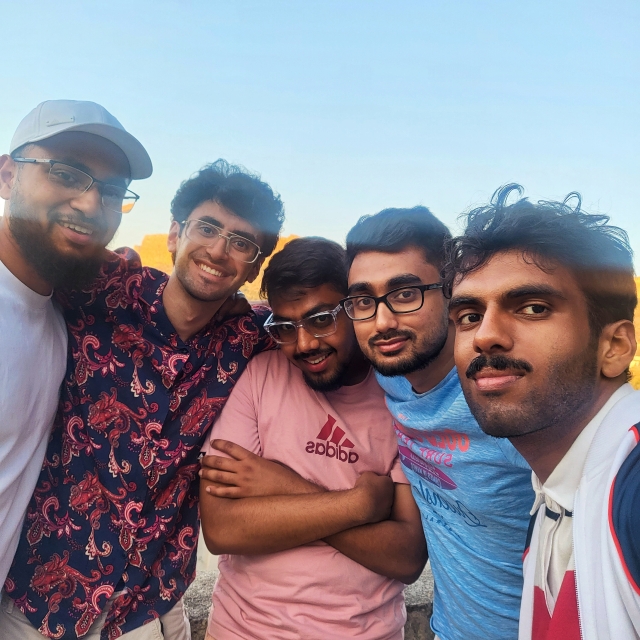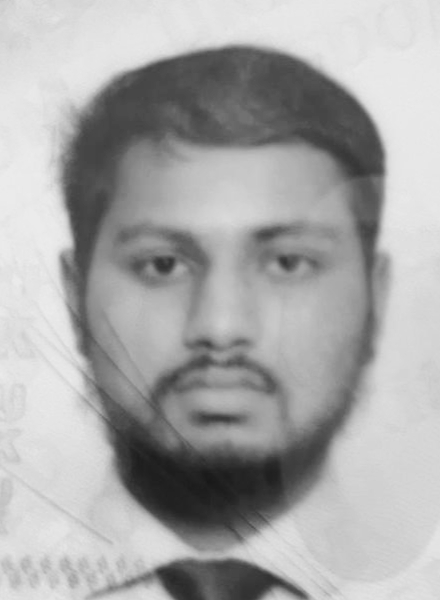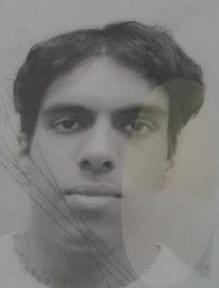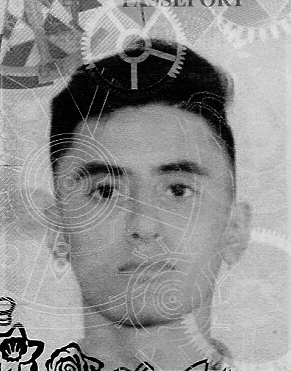There are few events in life that can be called defining moments. Moments in which you come into your own. Moments in which you found out for yourself what kind of a person you are. Moments you’ll remember and pass on to your children as lessons. Moments that make a good story for your blog. In this post, I’m going to tell you about three such moments in my life.
Before we begin, a quick disclaimer: I am in no way advocating for any of the behaviour I’m about to bring to light in this here post. Fighting is both dangerous as well as very immature. Hence, the last fight I had was more than three years ago when I was but a wee little boy (sixteen). I’m merely telling you these stories for entertainment value and perhaps even the off chance you can learn something from my stupidity. So, with the legal side of things sorted, let’s jump right into another – you guessed it – ORIGIN STORYTIME!
Fighting. ‘Tis a natural part of being human. We all fight; We’ve all fought. Every day, your body fights against foreign pathogens. Yesterday, you were fighting against your vices. Tomorrow, you’ll be fighting against an alien invasion. Right now, you’re fighting boredom by reading this post (thanks for the support, by the way, it means a lot). However, few fights are as self-defining as a good old fashioned brawl.
I’d go as far as to say that brawls are a rite of passage. You haven’t really lived until you’ve been punched in the face at least once. This is why I believe combat studies should be made an official part of the UK education curriculum. Too many people go through life without being punched in the face, and quite frankly, I find that unacceptable.
Most men have been in a physical brawl at least once in their youth. It’s how boys vent out their frustration. And it works, despite it being unsustainable (I could go into a diatribe about toxic masculinity, but I’ll save that for another day). That’s why – and I’m sure you’ve seen at least one example of this in your lifetime – boys can get into a fight one day and be best friends the next. For long-time followers of this blog, you may be able to recall that one of my closest friends actually knocked me out in year 7.
This isn’t to say women don’t fight – I went to public school in south-east London, I should know. In fact, I’d say women are even more brutal than men. A fight between two men ends with a little blood and some bruises. A fight between two women ends with a lot of blood. I’m talking on the floor, on the wall, on the ceiling and on the spectators. You break up a fight between two men, you become a hero. You break up a fight between two women, you become a martyr. Women are vicious. Y’all give me nightmares.
But regardless of who is doing the fighting, the fight itself can reveal a lot about their character. If you want to know if someone is merciful or merciless, watch them fight. If you want to know if someone is courageous or craven, watch them fight. If you want to know if someone is honourable or deplorable, watch them fight. Your actions in a fight, when the only thing that matters is your own survival, are the ones that speak most true to your character.
I’ve been in my fair share of fights, both in school and out. In some, I was victorious. In most, I was humiliated. However, each and every one of them served to teach me a valuable lesson. Either about the art of fighting, about myself or about life in general. Today, I will tell you the story of three of those fights.
The Advice That Started It All
Many years ago, before I started wearing glasses, I was attending nursery school. It was here that your boy got into a few scuffles with the other kids. Nothing major, just a little pushing and shoving and occasional kicking from time to time. After one particularly bad scuffle – the details of which have escaped me – I went home and cried to my dad.
Amidst a torrent of tears, I told my dad I hated school because none of the other kids liked me. I’ve still yet to outgrow my melodrama. I complained that none of the teachers did anything to stop it (whether this is true or not, I cannot remember). It was at this point that my dad dropped one of his many pieces of sage advice that would stick with me for life:
“Next time someone hits you, hit them back with the same force. You can’t rely on other people to save you. You have to stand up for yourself.”
To this day, those words continue to echo in my head whenever I’m confronted with a bully. In life, you have to stand up for yourself, and you have to stand up for those around you. Whenever you fail to stand up to a bully, a tyrant walks free to do what they did to you to others. Of course, now that I’m an adult, I’ll have to use methods other than physical violence, but the essence of the message still stands:
“You have to stand up for yourself.”
It would be these words that stop me from backing down from future fights no matter whether the odds were in my favour (as you will see, most of the time, they were not).
Fight #1: The Battle of the Collapsing Tiles
A few years later, after I started wearing glasses and a few more scuffles, I got into my first proper fight. It happened during my second week at secondary school. As I mentioned in previous posts, I never really fitted in and by this point into the school year, I had yet to make any friends.
We had just finished a PE lesson doing rugby. I was never really big on sports growing up, so I wasn’t very good at them. If you had to put me into a box, then I was more a geek than jock. Especially when it came to rugby, which can be quite scary for someone on the smaller side. Getting tackled by people twice your size is not a fun experience. Instead, I’d stay on the outside of the action. My worst fear was being passed the ball and then getting run down by fifteen angry lads.
Anyway, there I was, minding my own business, as we made our way back into the changing room. Our school building was very old and very cramped, evidenced by the creaking floorboards and the asbestos room we were forbidden to enter. As soon as I get into the room, I wash my hands in the sink and then turn to use the hand dryer. Suddenly, out of nowhere, someone grabs the back of my head and smashes it into the hand dryer. An eruption of guffaws fills the packed room.
I turn to face my attacker, anger steaming out my ears like in the cartoons. Standing before me were a group of students, but it wasn’t obvious which one had done it. So instead, I decide for myself who dared to do such a thing. Eventually, concluding it had to be the one with the big smug grin on their face: a kid whom we will refer to as K (seeing as his name began with a K).
To this day, I still have no idea what pushed K to shove my head into a hand dryer. Maybe it was because I was one of the smaller kids, not very athletic, and kind of strange looking with a big nose that my parents promised I would grow into. All this, coupled with my very low position in the secondary school social order, made me an easy target. Preying on the weak is a tactic many have used throughout history to gain respect and admiration, and I wouldn’t have put it past K to see me as his ticket to upward social mobility.
So there I was, angry and in need of retribution. My father’s words echoing in my head. I punch K directly in the kisser, knocking that smug grin from his face. The whole room goes silent save for someone in the back going, “OOOOOoOOOooooOOOOO.”
Now I wish I could say that was the end of it. That I punched K so hard, he fell to the ground and ran crying to his momma. That would’ve made a good story. Maybe it could’ve made it into tomorrow’s headlines: KID STANDS UP TO BULLY AND BECOMES NATIONAL HERO. But, unfortunately, that didn’t happen. All it did was make K blood-red angry. K also had something I didn’t have. K had friends.
Two of K’s friends grab me by the arms and haul me off the ground. I was now dangling in mid-air as K pummelled me in the stomach. Punch after punch, forcing air out my lungs. My eyes began to water as I clenched my jaw, trying to hold back cries of pain against a backdrop of year 7s chanting, “FIGHT! FIGHT! FIGHT!”
At some point during the barrage, my brain reminds me that I still have two other appendages at my disposal. With a great burst of effort, I lifted both my legs up into the air and launched them square into K’s chest. This didn’t do much, but it did force him back far enough to lightly brush the wall behind him. And that was all that was needed for the tired, old school building.
First, one tile collapsed off the wall. Followed by the one above it. Then the one above that. Until the entire wall of tiles had come crashing down to the floor in a cloud of dust. Everyone went silent yet again as K’s friends finally let me go.
“Rah, this school is older than my grandma.”
Whoever cracked that joke was a comedic genius because the entire room burst into laughter at that point. Even I managed a few fits between my wheezing. Eventually, the teachers arrive on the scene and ordered everyone to stop messing about. Then, after a stern telling off, they hurried us to get changed and dismissed us for the day. I don’t think anyone got in trouble that day; I’m pretty sure the teachers knew the school needed a renovation.
No adult found out about the Battle of the Collapsing Tiles. After all, snitches get stitches, as they say. I don’t even think I ever told my parents about it either (hey, mum and dad, if you’re reading this). I actually remember trying my best to hide the bruises from my parents. I guess I was too embarrassed to admit I’d been beaten up. A trend that continued throughout all my years in secondary education.
At the end of the day, I did learn a few lessons from this experience. Mainly not to start a fight when you’re outnumbered. I should’ve hit back with my words instead of fists. Cuss out his wonky teeth or something, I don’t know. At least that would’ve earned me the crowd’s approval and saved me from having an aching abdomen for a week. But, alas, it would take me many more years to perfect my wit.
Fight #2: The Battle of the Lunch Line
A few months later, I got myself into another fight just before we broke up for Easter. Like most Muslim kids born after 9/11, I’ve had to endure a lifetime of bullying for an atrocity I had nothing to do with. Most of the time, this would consist of verbal abuse, but sometimes it got physical. This was one of those times.
In my year group, there were only about four Muslims that I knew of. Now you’d think that us being in the minority would make us want to stick together, but alas, I was still too weird for the other Muslim kids to want to hang out with me. I guess a part of me also felt as though I wasn’t Muslim enough to hang out with them. Too Muslim for the non-Muslim kids but not Muslim enough for the Muslim kids (an identity crisis I still struggle with, but that we will save for another day). In short, I was left to navigate the Islamophobia of secondary school alone.
So there I was, waiting in line outside the cafeteria. Our school was so over capacity that there were three lines for lunch. The first line was around the corner of the cafeteria. Once you’d finished with this line, you’d get promoted to the line outside the entrance to the cafeteria. After that line, you’d have to queue one final time inside the lunch hall for your food, at which point you’d be lucky if any food was left. It wasn’t uncommon for students to go their 1-hour lunch break without eating, especially considering there were rules against eating anywhere besides the cafeteria.
Looking back, I’m surprised I managed to do as well as I did, considering the complete lack of resources. I believe this is one of the key downsides of academies. Without local authority oversight, academies get away with cutting a lot of corners to the detriment of their students’ wellbeing. And don’t even get me started on federations. *Cough* Harris *cough*. My principal was in charge of three schools within our federation, which meant she was only on-site once a week. I wouldn’t be surprised if most of the federation’s government funding went into the pockets of its executives.
Anyway, we’re getting carried away. Where was I? Oh, that’s right, I was waiting in line. A couple of students behind me started making jokes about 9/11. Now considering nearly 3,000 innocent Americans lost their lives that day, not to mention the hundreds of thousands of civilians killed during the War on Terror that proceeded it, 9/11 is no laughing matter.
Naturally, being the only Muslim within the vicinity, these jokes slowly started becoming insults hurtled towards me. If you’re Muslim, I’m sure you’re more than accustomed to being called all manner of slurs from “raghead” to “sandn*****” or just plain old “Osama.” However, one particular kid, whom we shall refer to as Z, got a little more creative with his insult:
“I bet your people did 9/11 to celebrate your birthday.”
Let us take a minute to analyse the inaccuracies of Z’s insult. First up, we have “your people.” Just in case you were unsure, I have zero affiliations with Al-Qaeda or any other terrorist organisation for that matter, and so they are not my people. In fact, I, alongside pretty much every other Muslim in the world, consider them a disgrace to humanity.
Next up, we have the bit about 9/11 being a celebration of my birthday. I wasn’t born until the 20th of November, two months after 9/11 (y’all know my birthday now, I expect gifts). So unless Al-Qaeda was a little too eager to celebrate my incoming birth, this part of the insult is also wholly inaccurate.
I would not stand for such slander and decided to fire back with a long string of expletives telling Z to shut his mouth. Not my most elegant moment, I assure you. This got him angry enough for him to push me. Now that he’d thrown the first shot, I was well within my rights to hit back in self-defence. And oh boy, did I hit back.
There we were, in the middle of the lunch line, throwing everything we had at each other. Punches, parries, elbows, headbutts, the whole lot. Whatever you wanted, we had it. Z hit me with a very strong right hook that drew blood from my nose (the bridge of my nose has a slight scar, and I think I got it from this fight, although it may well have been another). Then, just as the teachers were about to break us up, I thought I’d go in for one last dirty shot and so kneed Z in the balls. He doubled over, and I got detention. I wasn’t too fussed about it though, I had just won my first fight.
Fight #3: The Battle of the Keyboard
The last fight I ever had was around five weeks before my GCSE exams. As you can see, the urge to fight transcends the need to study. The backstory to this one is quite long, so bear with me.
For those who don’t know, I’m British-Pakistani. If you’re a minority in any country, you’re bound to be exposed to at least some racism. But Britain isn’t just any country. The British Empire basically pioneered how we see race and ethnicity, from the pseudo-science that’s still prevalent today to racist policies that were only overturned during my parents’ and grandparents’ lifetimes (the implications of which are still felt today). It is within this hotbed of racism that the word “Paki” was introduced.
“Paki” is a racial slur indiscriminately used against people of perceived South Asian descent. It is commonly associated with “Paki-Bashing”, which is a term used by skinheads to describe the act of violently assaulting people of perceived South Asian descent. My father has many stories of people he knew that were victims of “Paki-Bashing”. Luckily, “Paki-Bashing” was an outdated practice by the time I was born; however, hate crime, in general, is still prevalent throughout the UK.
For more information on the word “Paki” and my experience with racism, allow me to point you towards an interview I did with Pak-Cord: https://pakcord.com/coconut/
Anyway, leading up to the fight, there was a discussion in our English class about whether “Paki” was really a racial slur. Being the only Pakistani in the class, I assumed my opinion would hold the most weight, so I made it clear how I found the word very offensive and that I wouldn’t tolerate its use by anyone.
Unfortunately, being outnumbered, I became an easy target for harassment over this. People would pretend to almost say the word constantly. Usually, they’d go something like this:
“So Aqil, you’re a Pakiiiiiiiiiiiiiiiistani, right?”
Now you’re not really fooling anyone when you do this, but I knew that if I flipped on someone, then I’d be the one in the wrong. I bided my time and waited patiently for someone to slip up, and sure enough, someone did. We will refer to this individual as X (his name actually began with A, but I thought that’d be confusing since my name starts with A, so I opted to use the last letter of his name instead).
X was a troubled kid. His parents were very wealthy, they lived in a private estate, and he just seemed kinda out of place in a public school. You also got the sense that X didn’t get enough love from his parents, and seeing as he was also an only child, he seemed kinda lonely too. However, X was also a little edgy. We ended up finding a bunch of Nazi paraphernalia on his school computer during one of our Computer Science classes.
During another Computer Science lesson, a fellow student starts pushing my buttons. He asks me, in a mocking tone, whether the word “Paki” is offensive. I tell him yes. He then asks what I’d do if someone says it to my face. Being a sixteen-year-old male, filled to the brim with testosterone, I try to act all big and say that if someone says it to my face, I’ll punch them in theirs. This student then turns to X and dares him to say the word. X, being the edgy person he is, goes along with it and actually says the word.
Of course, I cannot promise something and then not deliver. I got up, walked over to X, grabbed him by his shirt collar, and pulled him out of his seat. We struggled for a few moments while all this was happening. He even tried removing his keyboard from his computer to hit me with it. After a few more moments of pushing and shoving, I eventually had him out of his seat and up against the wall.
Now that we were both standing, the striking began. We hit each other back and forth for about thirty seconds (which is actually a long time in a fight). Eventually, after just a few punches to the face and body, X yields and apologises. I accepted his apology and let him go. Then the SLT arrived.
The decision was made to separate us for the day. X got sent into exclusion while I was allowed to return to class. I only got off scot-free because the SLT member that first responded was one of the very few black members of staff, so he understood why I was upset and went easy on me. He was also my French teacher as well, and we got on, so maybe that played a factor too. However, not everyone was happy with his decision.
A few hours later, when I was in English, I get taken out of class by another member of the SLT. He couldn’t renege on his colleague’s decision, so he decided that he’d just give me a piece of his mind instead. He started off by saying:
“First of all, Aqil, I cannot believe he called you a Paki.”
And he just let the word sit there in the air. Now, regardless whether you think the word is offensive or not, you have just seen a student get emotionally unsettled by it. For you to then go out of your way to say that word to that student’s face is just wholly irresponsible. He then went onto a lecture about how hitting people is bad, but I wasn’t paying attention. To be perfectly honest, I was too shocked by what he’d just said to me as his opener.
It was during that lecture in the corridor that I realised you can’t fight everyone. Sometimes, people just have too much authority and power behind them. This realisation made me angry, but I was at a loss for words. To this day, I wish I said something, but I didn’t. I was too afraid to stand up for myself when it came to a teacher. After all, you can’t hit a teacher.
I vowed from that day on to perfect my ability to use words to stand up for myself rather than my fists. Now, this isn’t to say I wouldn’t physically defend myself if I’m physically attacked. If you punch me, expect it to get hella south up in here. However, if I can avoid a physical confrontation through my words, then that’s the route I take, and so far, it’s worked very well. I haven’t been in a fight since.
And that concludes the final fight of this here story. From reading this post, you may get the wrong impression that I spent my entire childhood getting into fights every other day. This is not true. In fact, compared to most other boys in my year group, I was quite timid. I reckon I had no more fights than the average boy growing up. Perhaps even fewer. I’m a lover, not a fighter.
Ultimately, fighting is just a part of life, and while we should avoid it, we shouldn’t shy away from it when the time comes. If you’re attacked, you have every right to defend yourself. While I may not be proud of the fights I got into as a kid, I’m glad I did. Now, whenever I have to deal with confrontations, I don’t back down because I know that I’ll be able to defend myself if it gets physical.






























